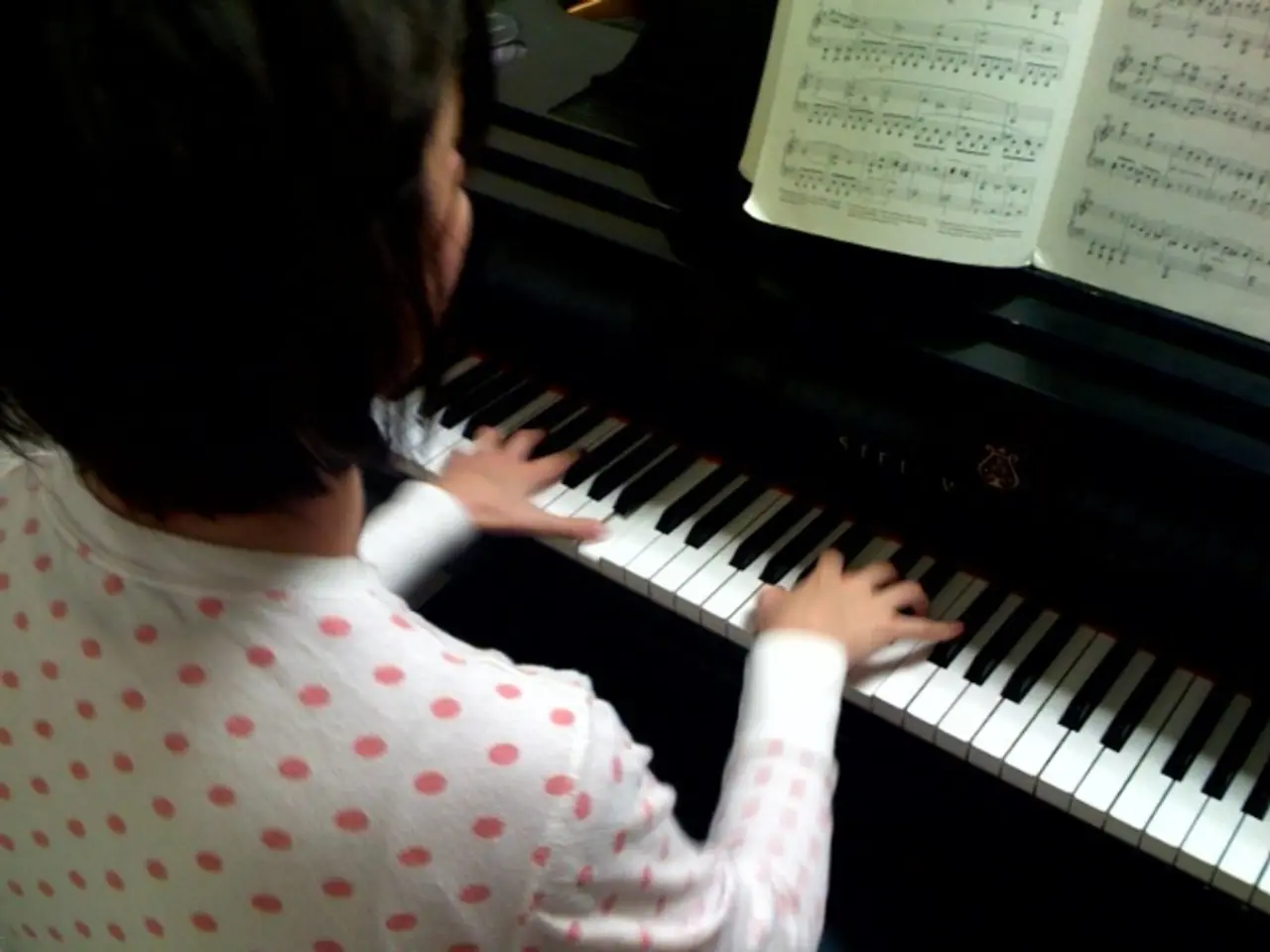Exam Assessments for ABRSM Music Performances
In the world of music examinations, the Associated Board of the Royal Schools of Music (ABRSM) has introduced a new format for piano performance assessments known as the ABRSM Performance Grades. These exams offer a more flexible, digital alternative to the traditional in-person ABRSM Practical Exams.
Traditional ABRSM Practical Exams are formal, in-person assessments where candidates perform a set program of pieces from the syllabus, along with technical work, sight-reading, and aural tests. These exams, graded strictly from Grade 1 to Grade 8, assess a range of interrelated skills including performance, technical ability, and musicianship to promote holistic development as a musician.
On the other hand, ABRSM Performance Grades are designed to be flexible and less formal. They emphasize performance and musicianship in a digital or video-submission format rather than a live examination setting. Candidates can upload their performances and technical work online as part of the assessment process, which allows for greater convenience and access.
The Performance Grades provide an alternative route for candidates who may prefer a more accessible, performance-centered assessment rather than a traditional exam setting. This distinction allows greater inclusivity while maintaining the rigor of graded achievement.
The format of the ABRSM Performance Grades is significantly different from the traditional exams. For instance, the video submission should include a filled-in programme form with song information, composer's name, syllabus list number, syllabus year, timing of breaks, and the instrument used in performance. The video must have a continuous flow with no editing, stopping, or starting, and should present a full performance of the four pieces selected.
Preparing the room to make it look nice and tidy is advised. Dressing appropriately, as if for a live concert, is recommended to show awareness of performance etiquette. Thanking examiners at the beginning or end of the recording is encouraged to acknowledge their presence.
It is worth noting that traditional exams remain the more recognized standard for qualifications like UCAS points or career progression, while Performance Grades offer an additional option aligned with modern technology and learner preferences. However, the choice between ABRSM Performance or Practical exams is about personal preference and how the learning experience can best impact the individual.
For children doing grades 1-3, it is recommended to count to ten in your head with your hands off the piano before starting a new piece to ensure there is enough space between the repertoire. Between pieces, it is recommended to take a few moments to gather oneself and thoughts before starting.
In both formats, the examiners focus on the musician's focus, stamina, and regular musical communication. The examiners for the ABRSM Performance Grades also assess the musician's continuous playing of four pieces, while in traditional exams, they assess a variety of skills in addition to performance.
In summary, the ABRSM Performance Grades offer a more flexible, performance-focused approach to music assessments, providing an alternative route for candidates who prefer a digital submission format. The traditional ABRSM Practical Exams, on the other hand, remain the more recognized standard for qualifications, offering a comprehensive assessment of a candidate's musicianship and technical skill.
The flexibility of ABRSM Performance Grades allows candidates to submit their performances and technical work online, thereby promoting online education and learning in the realm of music and entertainment. This format of assessment, focusing mainly on performance and musicianship, encourages self-development and education-and-self-development in musicians.
Despite the shift towards digital submissions, it is essential to maintain traditional aspects such as dress code and Courtesy, demonstrating respect for the composer's work and the examiners.
For individuals preferring a more accessible, performance-centered assessment, the ABRSM Performance Grades provide an excellent platform. On the other hand, the traditional ABRSM Practical Exams still serve as a more recognized standard for qualifications like UCAS points or career progression, offering a comprehensive evaluation of a candidate's musicianship and technical skill.




